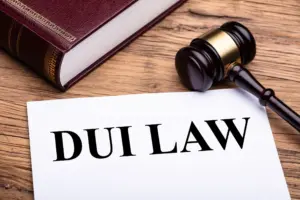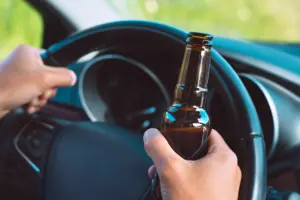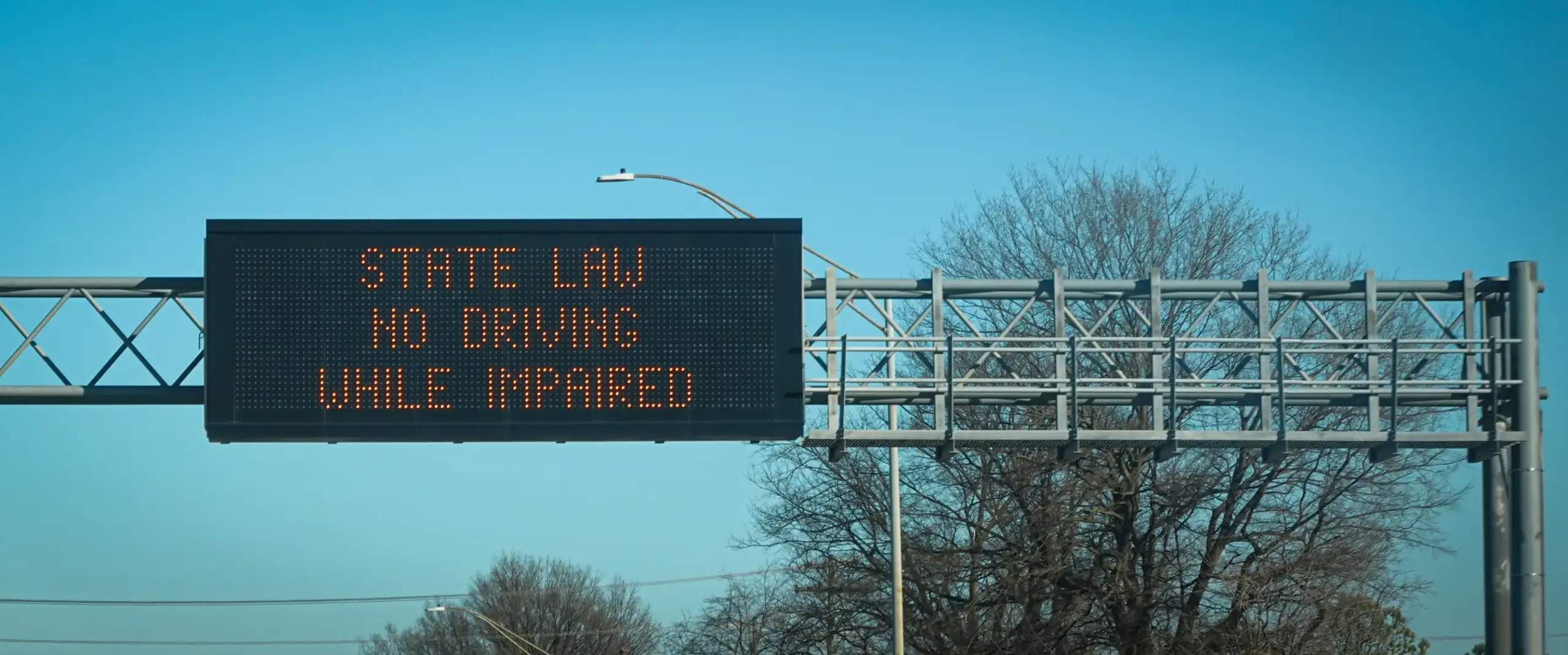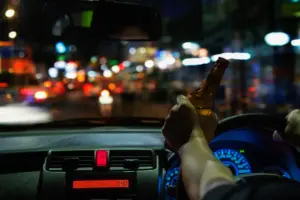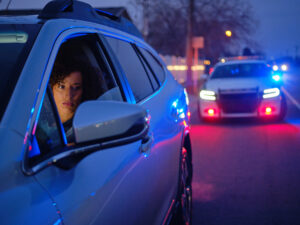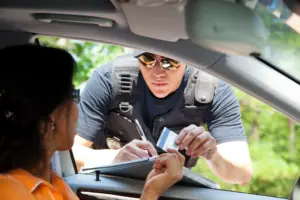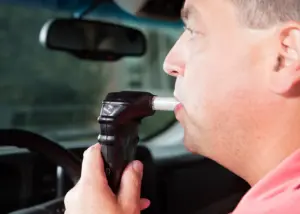Alcohol and driving is a dangerous combination, yet many people still take the risk. Whether it is a few drinks at dinner or a night out with friends, a person’s ability to operate a vehicle becomes impaired, resulting in irreversible consequences. It can involve serious legal, financial, and personal fallout. While states enforce strict regulations against it, alcohol-related crashes continue to happen, claiming the lives of thousands annually.
If you were involved in a drunk driving accident and are planning to sue for losses incurred, you can reach out to West Coast Trial Lawyers for guidance and support. Our personal injury attorneys will review your case, explain your rights, identify the at fault party, and negotiate settlements on your behalf.
With over 20 years of experience in personal injury law and more than $1.7 billion in settlements recovered, we understand how to approach such complex cases, and will work diligently to ensure we get you the compensation you deserve.
To set up a FREE consultation, you can reach out to our 24/7 legal team by calling (213) 927-3700 or filling out our easy online contact form.
What Qualifies as Drunk Driving?
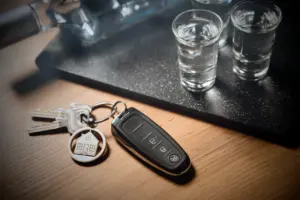
Drunk driving is charged as Driving Under the Influence (DUI) under California Vehicle Code § 23152. You can get arrested and charged with a DUI if you are found operating a vehicle while impaired by alcohol. The law enforces clear standards for what qualifies as drunk driving, and it also allows for arrest according to observed behavior and indications of impairment.
To evaluate the level of intoxication, a driver’s breath or blood will estimate blood alcohol concentration (BAC). For adults ages 21 and over, a BAC of 0.08 percent or higher is considered illegal. For commercial drivers, the BAC limit is 0.04 percent, and for drivers under the age of 21, the state’s Zero Tolerance law will apply, meaning that anything of or above a BAC of 0.01 percent will result in penalties.
However, you do not need to necessarily exceed the legal limit to be under arrest for DUI. If a police officer notices that you are impaired based on slurred speech or unsteady movement, you can still be met with consequences. This basically makes it illegal to drive while “under the influence” of alcohol regardless of what your BAC level is as long as it can be proven that you were impaired.
We would also like to note that drunk driving laws do not just apply to cars. You can also face legal repercussions for a DUI while operating motorcycles, boats, electric scooters, and even a bike, especially if you are dangerously impaired.
What Are the Consequences of Drunk Driving?
The consequences of drunk driving can be severe and will vary depending on certain factors, like your BAC level along with prior offenses and if any injuries are involved. Since California treats DUI as both a criminal offense and a serious public safety issue, penalties (CVC 23536, 23540, 23546, & 23550) may include fines, license suspension, and even a prison sentence. Let’s take a look at these in more detail in the sections below.
First Offense
A first-time DUI will be considered a misdemeanor. This may result in the following punishments:
- 48 hours to six months in jail
- 3 to 5 years of informal probation (in addition to penalty assessments)
- Fines ranging from $390 to $1,000
- 6-months license suspension,
- A mandatory 3-month or 9-month DUI education program
- An ignition interlock device (IID) placed in your vehicle
Second Offense
A second DUI conviction within 10 years of your first will be a misdemeanor, as well, with penalties including:
- Between 96 hours to one year in jail
- $390 to $1,000 in fines (plus additional charges)
- Three to five years of probation
- A license suspension of up to two years with the possibility of a restricted license after 90 days if an IID is installed
- Required attendance for an 18-month or 30-month program
Third Offense
A third DUI offense is a misdemeanor with hefty penalties, including:
- 120 days to one year in jail
- $390 to $1,000 in fines (coupled with assessment fees)
- License suspension of three years
- An IID installed in your vehicle for two years
- A 30-month DUI education program
- Probation or court monitoring lasting between 3 to 5 years
Fourth Offense
A fourth offense within a 10-year period will automatically be deemed as a felony. This means that harsher penalties will be enforced, such as:
- 16 months, 2 years, or 3 years in state prison
- Up to $1,000 (in addition to various assessments and fees)
- 4-year license revocation, but if an IID is installed, it may permit restricted driving
Why Is Drunk Driving a Crime?
Drunk driving is a crime because it poses a serious threat to public safety. When a person operates a vehicle while under the influence of alcohol, their ability to drive is significantly impaired. This can result in:
- Poor judgment
- Failing to brake appropriately
- Improper speed control
- Reduced response to abrupt road changes
- Inability to maintain lane position
- Blurred vision affecting the ability to track moving objects
Laws enforced against drunk driving are made to prevent tragedies by deterring risky behavior and holding the at fault party accountable. By criminalizing such conduct, California aims to reduce drunk driving deaths on the road and encourage drivers to be responsible when behind the wheel.
Is Drunk Driving a Felony?
Drunk driving can be a felony in California, but this does not apply in every case. A majority of first-time DUI offenses are classified as misdemeanors, primarily if there was no injury or property damage involved. But, certain issues can push it to become a felony, which will involve much stricter penalties.
When Was Drunk Driving Made Illegal?
Drunk driving was made illegal in California in 1911, making it one of the earliest states to prohibit drivers from operating a vehicle while intoxicated. In that year, the California Legislature passed a law stating that “no intoxicated person shall drive” on any public highways. At this time, there were no BAC limits or breath tests created. Instead, law enforcement had to rely on observable signs of intoxication, like slurred speech or erratic behavior.
Which Condition Is Associated with Alcohol-Impaired Driving?
Driving while under the influence can affect public safety, and continues to become one of the leading causes of fatal motor vehicle accidents in the United States, accounting for 30 percent of such cases. When a person consumes an alcoholic beverage, it will alter the way their mind and body operates, making it difficult for them to maintain proper vehicle control. The primary condition associated with alcohol-impaired driving is reduced motor and cognitive function. Predictable effects will be discussed below.
Slowed Reaction Time
The most notable effect of alcohol is a reduced information processing capability. This means that a driver who is intoxicated will have difficulty steering away from foreseeable road obstacles in a timely manner. Even a slight delay with a response can make a difference between preventing a drunk driving crash and causing one.
Impaired Judgment
Alcohol can target the part of the brain that is responsible for reason and self-control. Intoxicated drivers may find themselves more likely to participate in dangerous behaviors, like speeding, running a red light, or tailgating. These poor decisions can ultimately result in serious and fatal accidents.
Loss of Coordination
Motor skills are important to maintain safe driving. Alcohol can affect hand-eye coordination, muscle control, and balance. Drivers may find it difficult to stay in their lane or respond to traffic conditions properly. Loss of coordination may progressively worsen as BAC increases.
Blurred Vision
In addition to this substance impacting the brain and muscles, it can also cause you to experience impaired perception and trouble comprehending distances. Mixing dim-lit or nighttime conditions with this problem will worsen a drunk driver’s position as it will make it even more challenging for them to see clearly.
How Many Drunk Driving Accidents Per Year?
Alcohol-impaired driving remains as one of the biggest threats to public safety on California’s roadways. It was reported, in 2022, that 1,479 people died due to alcohol-related crashes, which was about a 2 percent increase when comparing it to 2021. It accounted for one-third (33 percent) of traffic fatalities within the state. These figures indicate the urge to implement comprehensive efforts to lessen or prevent impaired driving and the devastating consequences that come with it.
In 2023, it was noted that 1,089 people were killed and over 27,000 were injured as a result of impaired driving, undermining the importance of continued proactive measures. The CHP, nonetheless, continues to have a main goal, and that is to keep drivers and other road users safe when traveling.
In response to this issue, the California Highway Patrol (CHP), in collaboration with the California Office of Traffic Safety (OTS), launched a year-long “Bring Impairment Down,” campaign. It is funded by a $6.1 million OTS grant, and combines enhanced enforcement with public education, all with the motive to maintain safer road conditions.
What Are the 5 Facts About Drunk Driving?
Every year, thousands of people are killed due to drunk driving. Despite ongoing efforts, alcohol-related crashes continue to occur on California roads, claiming lives, devastating families, and burdening communities. Understanding important facts about impaired driving is one of the first steps of prevention and accountability. Below are some key facts everyone should know about.
1. Impaired Driving Happens on Numerous Occasions Before an Arrest
To many people’s surprise, impaired driving occurs more frequently than one would suspect, because according to the National Highway Traffic Safety Administration (NHTSA), the average alcohol-impaired driver has operated a vehicle more than 80 times before their first arrest. This is due to the popular misconception that one or two drinks won’t affect a driver’s ability to properly operate a vehicle.
2. Alcohol-Related Accidents Are More Common During Holiday Seasons
The NHTSA reported that alcohol-impaired driving remains a leading factor in fatal crashes, especially during the holidays. Data collected from 2018 to 2022 also found that the December months had a higher number of alcohol-impaired driving crashes. A total of 4,759 deaths were documented, and in December 2022 alone, 1,602 people died as a result of impaired driving. Young individuals between 21 to 34 accounted for 25 percent of drunk drivers involved in deadly traffic crashes.
3. Alcohol Impairment Can Start at a BAC of 0.05 Percent
Researchers found that alcohol impairment begins at a BAC of 0.05 percent. The study states that nearly all drivers experience some form of impairment at this level, and the risk of an accident will significantly rise at this threshold. This does not necessarily mean that they are falling-down drunk, but it does indicate a reduced ability to maintain critical driving skills.
4. Drunk Driving Costs the U.S. Over Billions of Dollars Annually
The NHTSA claims that drunk driving has taken a toll on the U.S. financially, with it costing the state $68.9 billion annually. The Centers of Disease Control and Prevention (CDC) also shared that the cost of fatal crashes involving alcohol-impaired driving in 2020 totaled to $123.3 billion. These included medical bills and the number of lives lost.
5. A DUI Offense Can Affect More Than Just Your Driver’s License
Driving while under the influence is a dangerous offense that can result in severe legal consequences. Other than a license suspension, first-time offenders may face over $10,000 in total costs. This includes:
- Fines
- Court fees
- An IID
- Higher premiums
- Mandatory DUI programs
Is DUI and Drunk Driving the Same Thing?
Drunk driving is a common phrase used to describe a driver who is operating a vehicle with a BAC of or above 0.08 percent.
DUI means Driving Under the Influence, and is prohibited while impaired by alcohol, drugs, or a combination of both. It covers more than just alcohol, and also applies to drivers who are under the influence of any drug, such as prescription medication or illegal substances.
California has not adopted the term DWI (Driving While Intoxicated) as other states have. Instead, any alcohol- or drug-related driving offenses will be charged under DUI laws.
How Do Impaired Driving Laws Differ Within Your State?
Other than California, other states have established their own unique driving laws that vary significantly from one another. If you live in Nevada, Arizona, or Washington, you could be met with different forms of punishment for performing the same conduct. Let’s take a look at each rule below to see how they compare.
Nevada
Nevada uses the term DUI to define drunk drivers. The legal BAC limits are fairly similar to California:
- 0.08 percent for adults
- 0.04 percent for commercial drivers
- 0.02 percent for drivers under 21
A first-time conviction will carry 2 days to 6 months in jail or community service. Offenders will be given fines ranging from $400 to $1,000 (plus court costs), a 185-day license suspension, 48 hours to 96 hours of community service, and DUI program (NRS 484C.400). If the drunk driver has a BAC of or above 0.18 percent, an IID may be required. Harsher consequences will be administered for repeat offenders within 7 years of a prior conviction.
A first and second offense may be considered a misdemeanor, but a third offense will be treated as a category B felony. The offender will be sentenced to 1 to 6 years in state prison and receive a fine between $2,000 and $5,000.
Washington
Under RCW 46.61.502, it is illegal for a person to drive while under the influence of alcohol. A person may be considered legally impaired, if within two hours, their BAC is 0.08 percent higher, as measured by a blood or breath test. But, if the levels are lower than this limit, they can still be convicted of DUI if they are affected by alcohol.
A first or second DUI will be classified as a gross misdemeanor, resulting in up to 364 days in jail and a fine of up to $5,000. But, if an individual has three or more prior DUI-related offenses within a 10-year span, or has been previously convicted vehicular homicide or assault while under the influence, the charge will worsen to a class B felony.
This is effective until January 2026. After that, changes will be made moving forward. Currently, a person can be charged with a felony DUI if they have three or more prior offenses within a 10-year period. But, in 2026, the lookback period will change to 15 years. This means that any DUI offenses that take place within this timeframe will be used to raise the new DUI charge to a class B felony, resulting in harsher punishments.
Arizona
According to A.R.S. § 28‑1381, it is prohibited for an individual to drive or be in actual physical control of a vehicle if any of the following conditions are presented:
- Impaired by drugs, alcohol, or vapors even to the slightest degree and
- A BAC of or above 0.08 percent or 0.04 percent if you are a commercial/for-hire driver within 2 hours of driving
So, if you have a BAC of 0.05 percent or less, you will not be considered under the influence. Anything greater than 0.05 percent, but less than 0.08 percent will be no presumption either way. But, levels of 0.08 percent or more will be classified as driving under the influence.
A DUI conviction is a class 1 misdemeanor, leading to a minimum of 10 days in jail and at least a $250 fine. The individual may be ordered by the court to perform community restitution, and may also have to install an IID in their vehicle for alcohol-related cases.
Aggravated DUIs are treated more seriously. If a driver is found with a BAC between 0.15 and 0.199 percent, they will be charged with Extreme DUI, while a BAC of 0.20 percent or more will qualify as Super Extreme DUI (A.R.S. § 28‑1382). These are both identified as class 1 misdemeanors, but will come with enhanced penalties, such as:
- A minimum prison sentence of 30 to 45 consecutive days
- Higher fines
- Extended IID
- Mandatory alcohol education or treatment program
Meanwhile, A.R.S. § 28‑1383 defines Aggravated DUI as a felony offense under certain cases. These include the following:
- Operating a vehicle while having a suspended, revoked, or canceled driver’s license
- Having a third or subsequent DUI within 7 years
- Driving while under the influence with a child who is 15 or younger in the vehicle
- Committing a DUI while having a court-ordered IID restriction
Get the Compensation You Deserve After a Drunk Driving Crash
If you were injured because of a drunk driver, you may have the right to file a lawsuit against the at fault party to recover compensation. At West Coast Trial Lawyers, our skilled personal injury attorneys will investigate the crash thoroughly and collect evidence to help you build a strong claim against the opposing side. If necessary, we will also represent you in court, advocating on your behalf to get you the best possible outcome.
If you would like to know what you could be entitled to, you can use our personal injury settlement calculator by inputting the expenses you incurred from the accident.
To get started on the legal process, you can schedule a FREE consultation today by calling (213) 927-3700 or completing our convenient online contact form.
